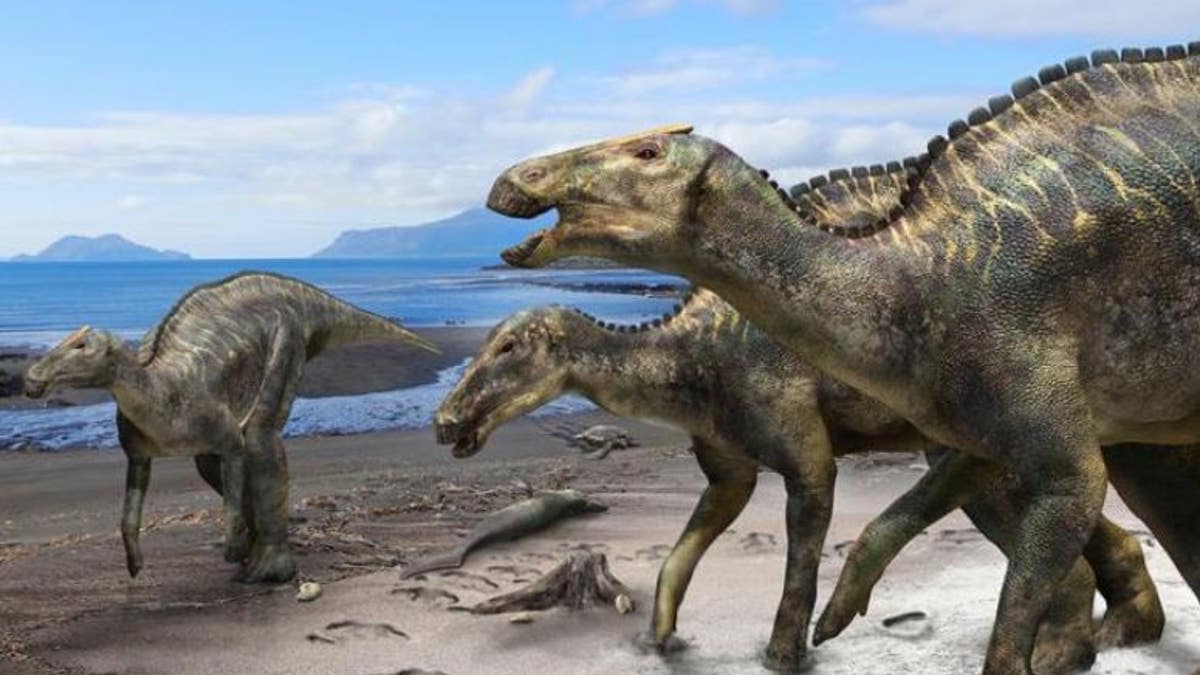Fox News Flash top headlines for Sept. 5
Fox News Flash top headlines for Sept. 5 are here. Check out what's clicking on Foxnews.com
A dinosaur that was unearthed from 72-million-year-old marine deposits in northern Japan belongs to a new genus and species, researchers announced.
A partial tail was first found in 2013 in Mukawa Town, Hokkaido, in Japan. Later excavations discovered a nearly complete skeleton that is the largest ever found in Japan.
Researchers named the dinosaur Kamuysaurus japonicus.
In the current study, a group of researchers led by professor Yoshitsugu Kobayashi of the Hokkaido University Museum conducted comparative and phylogenetic analyses on 350 bones and 70 taxa of hadrosaurids, which allowed them to figure out that the dinosaur belongs to the Edmontosaurini clade.
The research team also found that the dinosaur has three characteristics e not shared by other dinosaurs in its clade (a clade is a group of organisms believed to have evolved from a common ancestor): the low position of the cranial bone notch, the short ascending process of the jaw bone, and the anterior inclination of the neural spines of the sixth to 12th dorsal vertebrae.
STEAMBOAT GEYSER AT YELLOWSTONE BREAKS YEARLY ERUPTION RECORD

This is a reconstruction of Kauysaurus japonicus. (Kobayashi Y., et al, Scientific Reports, September 5, 2019) (Kobayashi Y., et al, Scientific Reports, September 5, 2019)
The dinosaur was reportedly an adult age 9 or older, measured eight meters long, and weighed four tons (5.3 tons when it was alive).
The study, which was published in Scientific Reports, also shed light on how the clade evolved and may have migrated, with its ancestors eventually spreading across Asia and North America.









































